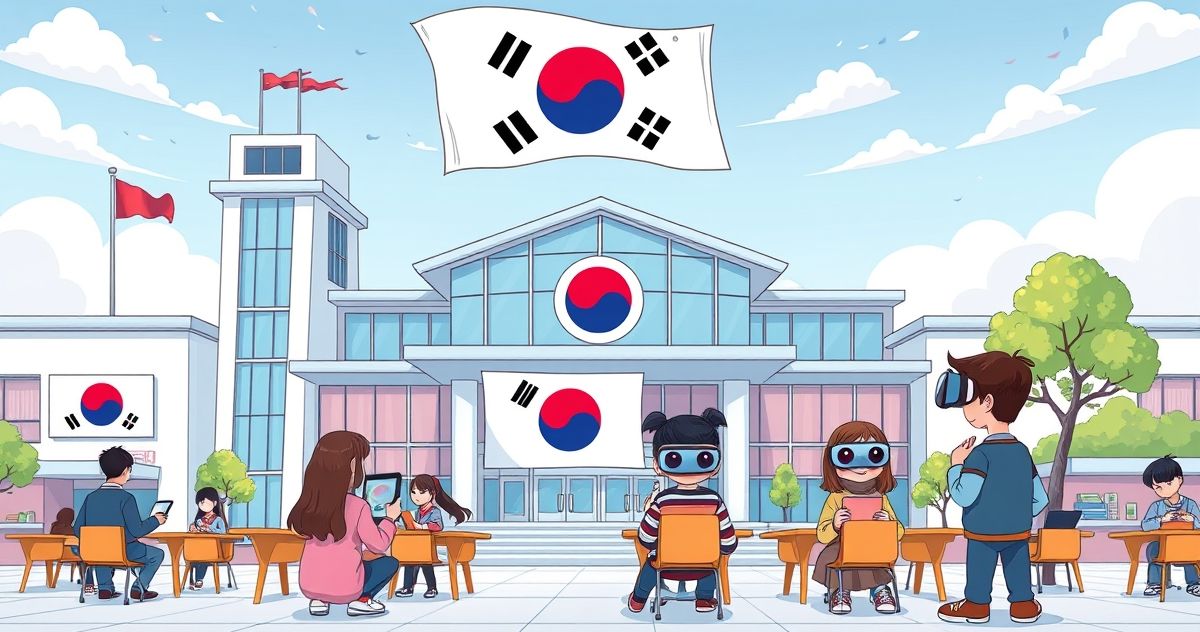
Gwangju Education Superintendent Declares "Renaissance Era" for City's Education System
Lee Jung-seon, Superintendent of Gwangju Metropolitan Office of Education, has declared the beginning of a "Gwangju Education Renaissance Era" as he enters his second term. This announcement presents a comprehensive blueprint for transforming Gwangju's educational landscape and marks what could be a pivotal moment in the city's educational innovation journey.
Establishing Future-Oriented Educational Infrastructure
Superintendent Lee has unveiled a series of revolutionary policies aimed at qualitatively enhancing Gwangju's educational standards. The most notable initiative is the "365-Study Room" project, an innovative educational service that provides students with autonomous learning spaces available year-round. This represents a significant departure from traditional uniform educational environments, creating customized spaces where students can study according to their individual learning styles and schedules.
The project reflects a growing understanding that modern education must adapt to diverse learning needs and preferences. Rather than forcing all students into the same rigid schedule and environment, the 365-Study Room concept recognizes that effective learning happens when students have the flexibility to study when and how they learn best.
Another cornerstone policy is the establishment of "One High School, One Career Education Center," designed to provide cutting-edge career and academic guidance information. This initiative responds to the rapidly changing educational environment and entrance examination systems by delivering real-time, accurate information to students and parents. The program will particularly focus on providing information about emerging career fields required in the Fourth Industrial Revolution era, along with comprehensive career planning programs.
Strengthening Global Educational Competitiveness
Superintendent Lee emphasized his commitment to making Gwangju education stand tall on the world stage during his term. "I will do my best to ensure that Gwangju education can stand proudly in the world," he stated, outlining his vision for developing the city into a global educational hub.
To achieve this ambitious goal, the administration plans to implement multi-faceted internationalization policies including expanding international education programs, revolutionizing foreign language education, and establishing overseas sister school networks. These initiatives aim to provide Gwangju students with truly global perspectives and opportunities.
Particularly noteworthy is the plan to leverage Gwangju's unique historical characteristics to develop world-class democratic citizenship education and human rights education. This approach seeks to create a distinctive educational model that honors the spirit of the May 18 Democratization Movement while pursuing future-oriented values. This educational philosophy represents a unique fusion of historical consciousness with progressive educational ideals.
Digital Education Innovation and Creative Talent Development
In response to the digital transformation era, the administration will focus intensively on creating smart educational environments. Plans include introducing AI-based personalized learning systems, developing immersive educational content using metaverse technology, and expanding coding education programs. These initiatives aim to establish the foundation for nurturing future-ready talent.
The digital transformation goes beyond simply introducing new technologies; it represents a fundamental reimagining of how education can be delivered and experienced. By leveraging artificial intelligence and virtual reality, Gwangju aims to create learning experiences that are more engaging, personalized, and effective than traditional methods.
Additionally, capitalizing on Gwangju's identity as an arts city, the administration plans to further strengthen creative arts education while expanding gifted education in science and technology fields. This strategy aims to cultivate creative talent that integrates culture, arts, science, and technology, thereby securing differentiated competitive advantages for Gwangju's educational system.
The integration of arts and sciences reflects a modern understanding that innovation happens at the intersection of different disciplines. By fostering students who are equally comfortable with artistic expression and scientific inquiry, Gwangju hopes to produce graduates who can tackle complex, multifaceted challenges.
Comprehensive Vision for Educational Transformation
Superintendent Lee's announcement is being evaluated not as a simple enumeration of policies, but as a comprehensive vision pursuing fundamental change in Gwangju's education system. The educational community is closely watching the specific implementation plans for successfully launching this Gwangju Education Renaissance Era.
The success of these initiatives will likely depend on effective coordination between various stakeholders, adequate funding, and sustained commitment to innovation. If successful, Gwangju's educational transformation could serve as a model for other cities seeking to modernize their educational systems while maintaining their unique cultural identities.
Original: https://trendy.storydot.kr/politics/gwangju-education-renaissance


0 Comments